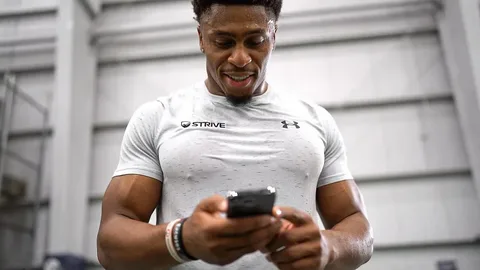Introduction: Beyond the Game – The Rise of Athlete Entrepreneurs
In 2025, the line between sports and business is thinner than ever. Athletes are no longer just players; they are global brands, investors, and entrepreneurs. With massive salaries, sponsorship deals, and millions of fans worldwide, sports stars are now channeling their wealth into smart investments.
But how do athletes invest? What businesses do they own? And why is entrepreneurship becoming a critical part of an athlete’s long-term wealth strategy?
This article explores the businesses owned by sports stars, highlighting how they turn athletic success into financial empires.
Alt text suggestion: “Basketball player signing endorsement deal contract”

Why Athletes Turn to Business Investments
Athletes often earn fortunes at a young age, but careers in professional sports are short. Injuries, age, or declining performance can end a career overnight. To protect their wealth, athletes diversify their income streams through businesses and investments.
Key reasons athletes invest:
- Financial security after retirement – Sports careers average less than 10 years, but smart business investments provide lifelong income.
- Brand expansion – Athletes leverage their names to launch products and services.
- Passion projects – Many invest in industries they love, such as fashion, fitness, or technology.
- Generational wealth – Building companies ensures financial legacies for their families.
Alt text suggestion: “Stack of dollar bills with basketball and football”
The Evolution of Athlete Investments
Decades ago, many athletes relied solely on their salaries and endorsements. Today, that model has changed. Stars now hire financial advisors, create holding companies, and even partner with venture capital firms.
The shift can be seen in how sports stars are no longer silent investors; they are actively building brands. From launching gyms and restaurants to owning record labels and tech startups, the athlete investment portfolio is more diverse than ever.
Famous Athlete-Owned Businesses
LeBron James – SpringHill Company & Blaze Pizza
LeBron James is a prime example of athlete entrepreneurship. He co-founded SpringHill Company, a media production giant behind TV shows, films, and documentaries. His storytelling platform not only grows his wealth but also influences culture.
LeBron also invested in Blaze Pizza, turning his initial investment into one of the most profitable restaurant chains in the U.S. His stake grew significantly as Blaze expanded nationwide.
Alt text suggestion: “LeBron James promoting business venture”
Serena Williams – Serena Ventures
Tennis legend Serena Williams launched Serena Ventures, an investment firm focused on supporting women and minority entrepreneurs. Her company has invested in more than 60 startups across industries like fintech, e-commerce, and health.
Williams’s strategy shows how athletes use their platforms to drive social change while building wealth.
Cristiano Ronaldo – CR7 Brand & Hotel Chain
Cristiano Ronaldo is more than a football superstar—he is a global businessman. Through his CR7 brand, Ronaldo owns clothing lines, fragrances, and accessories. Beyond fashion, he co-owns a chain of Pestana CR7 Hotels in Europe, combining luxury hospitality with his brand identity.
His ventures prove that an athlete’s personal brand can evolve into a business empire.
Michael Jordan – Jordan Brand
Michael Jordan may be retired, but his Jordan Brand under Nike generates billions annually. More than just sneakers, the brand has become a cultural icon.
Jordan’s success shows how brand partnerships can transform into standalone global businesses. His annual earnings from the brand often surpass what he made during his NBA career.

Naomi Osaka – Kinlò Skincare
Naomi Osaka, one of tennis’s rising stars, founded Kinlò, a skincare line designed for melanated skin tones. Recognizing a gap in the beauty industry, she combined her influence with a passion-driven business idea.
Her company highlights how modern athletes build businesses aligned with personal identity and advocacy.
Shaquille O’Neal – Franchise King
Shaquille O’Neal has mastered franchising. He has owned stakes in Papa John’s, Five Guys, Auntie Anne’s, and Krispy Kreme. Beyond food, Shaq has invested in fitness gyms and tech companies.
His wide-ranging investments show the power of diversifying across industries.
Lionel Messi – Lifestyle & Investments
Lionel Messi has expanded his empire with Messi Store (a clothing brand) and multiple real estate holdings across Europe. He also collaborates with beverage and sports nutrition companies, making him one of the top athlete investors.
Kevin Durant – Thirty Five Ventures
NBA star Kevin Durant co-founded Thirty Five Ventures, a company that invests in media, sports, and technology startups. His firm has backed companies like Coinbase and Postmates.
Durant also produces documentaries and sports media content, cementing his place as both an investor and cultural influencer.
Roger Federer – On Runnin
Roger Federer became a major shareholder in On Running, a Swiss athletic footwear company. His partnership transformed the brand into a global player in sportswear, proving that strategic equity deals can outperform endorsement checks.
Conor McGregor – Proper No. Twelve Whiskey
MMA fighter Conor McGregor founded Proper No. Twelve Whiskey, which quickly grew into an international success. McGregor later sold the majority stake, cashing out hundreds of millions.
This move shows how athletes can create products that resonate globally, then scale through strategic exits.
Types of Businesses Athletes Invest In
Athlete investments typically fall into key categories:
- Fashion & Lifestyle – Clothing lines, shoes, fragrances (Ronaldo, Jordan, Messi).
- Food & Beverage – Restaurants, whiskey brands, fast-food franchises (Shaq, McGregor).
- Media & Entertainment – Production companies, streaming content (LeBron, Durant).
- Technology & Startups – Apps, fintech, e-commerce (Serena Williams, Durant).
- Real Estate & Hospitality – Hotels, luxury apartments, property developments (Ronaldo, Messi).
- Health & Wellness – Skincare, fitness, supplements (Osaka, Venus Williams).

Alt text suggestion: “Collage of athlete-owned businesses across industries”
Challenges Athletes Face in Business
Not all athlete investments succeed. Some face challenges such as:
- Lack of experience – Many athletes are new to entrepreneurship.
- Overspending & poor management – Wealth mismanagement has led to bankruptcies.
- Risky ventures – Not every startup or brand survives the market.
- Balancing sports & business – Athletes must juggle training, games, and boardrooms.
However, with financial advisors and strategic partners, many athletes have minimized risks and built sustainable enterprises.
The Future of Athlete Investments
In 2025, athlete investments are only growing. As sports stars become more financially educated, they are shifting from passive endorsements to equity ownership and venture capital.
Future trends include:
- More athlete-led venture firms – Following Serena Williams and Kevin Durant.
- Expansion into tech and AI – Athletes investing in future industries.
- Global business presence – Athletes targeting worldwide audiences with their brands.
- Social impact businesses – Companies that align with activism, health, and sustainability.
Conclusion: Athletes as Business Moguls
Athletes are no longer defined solely by their performance on the field or court. From LeBron’s media empire to Serena’s investment fund and McGregor’s whiskey brand, sports stars are shaping industries.
Their stories prove that financial intelligence, vision, and brand power can transform short careers into lifelong wealth. For young athletes, these examples highlight the importance of building beyond the game.
In 2025 and beyond, expect more athletes to step into boardrooms, launch startups, and dominate industries far from the stadium lights.

I could not resist commenting. Perfectly written!